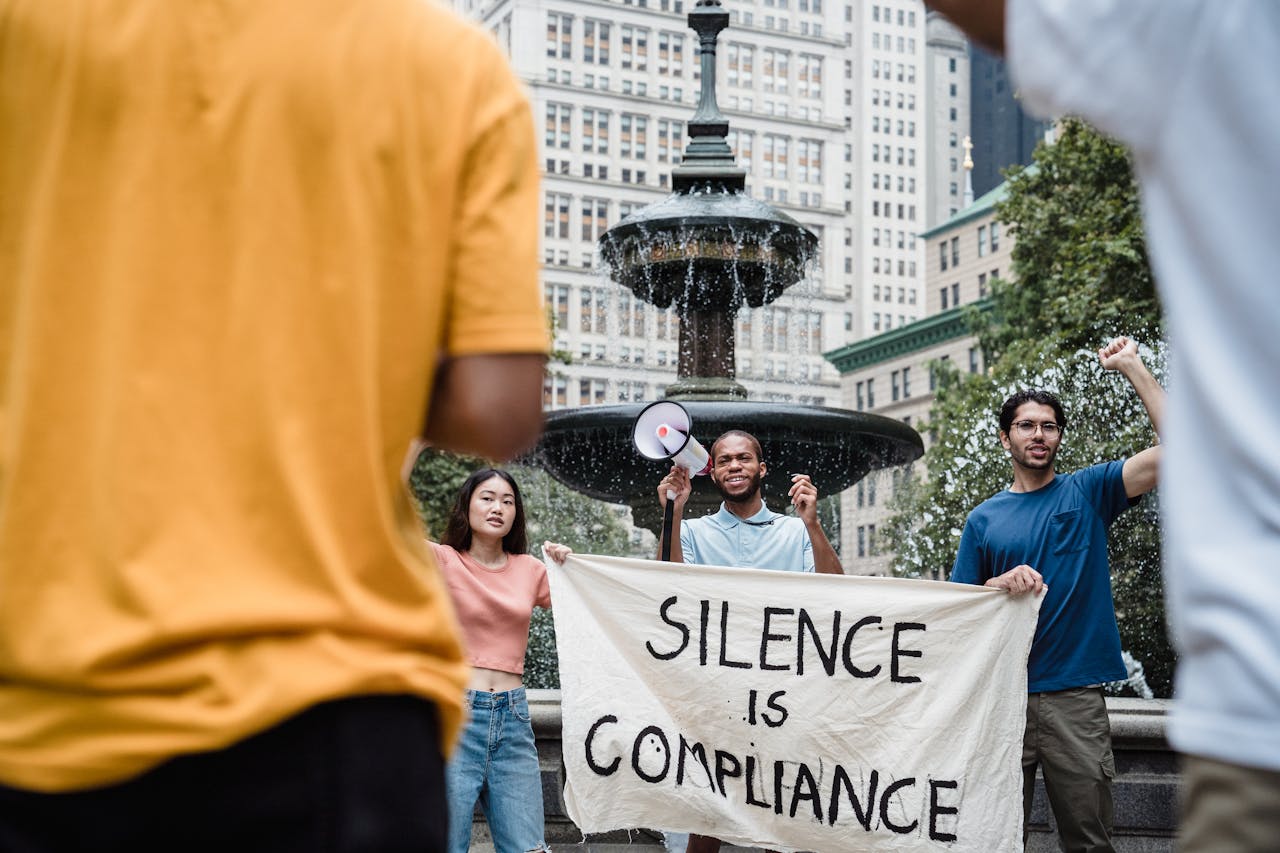In the midst of chaos and unrest, finding peace can seem like an impossible task. However, amidst the turmoil, there are always moments of inspiration and hope that remind us of the human spirit’s resilience. Here are seven inspiring sentiments to help you find peace amidst protest chaos:
Table of Contents
Toggle1. Unity in Diversity
One of the most inspiring aspects of protests is the coming together of people from diverse backgrounds, united by a common cause. In the face of adversity, individuals set aside their differences to stand in solidarity, reminding us that we are stronger together.
2. Courageous Voices
Protests amplify the voices of those who have long been marginalized or silenced. From activists to everyday citizens, individuals bravely speak out against injustice, inspiring others to find their own courage and raise their voices for change.
3. Acts of Kindness
Amidst the chaos of protests, acts of kindness shine brightly. Whether it’s offering water to fellow protesters, providing first aid to those in need, or simply offering a word of encouragement, these small gestures of kindness remind us of the inherent goodness within humanity.
4. Resilience in Adversity
Protests often face opposition and adversity, yet they persist. The resilience of those who continue to march, even in the face of obstacles, is a testament to the human spirit’s strength and determination.
5. Creativity and Innovation
Protests are often accompanied by creative forms of expression, from art installations to music performances. These innovative approaches not only capture attention but also inspire new ways of thinking and problem-solving.
6. Empathy and Compassion
In times of turmoil, empathy and compassion are essential. Protests foster a sense of empathy as individuals come together to support one another and advocate for those who are suffering injustices.
7. Hope for the Future
Above all, protests offer hope for a better future. They serve as a catalyst for change, igniting conversations and actions that have the potential to create a more just and equitable society for generations to come.
The Role of Dialogue and Understanding in Resolving Conflict
Fostering Open and Honest Dialogue
Effective communication is essential for resolving conflict and building bridges of understanding between opposing factions. By fostering open and honest dialogue, individuals can create opportunities for mutual respect, empathy, and reconciliation. Through respectful exchange of ideas and perspectives, individuals can find common ground and work towards constructive solutions to the underlying issues driving protest and unrest.
Embracing Diversity and Inclusion
Inclusive dialogue that embraces diversity of thought, experience, and identity is essential for building a more just and equitable society. By actively listening to marginalized voices and perspectives, individuals can gain a deeper understanding of the root causes of social injustice and inequality. Moreover, by embracing diversity and inclusion, individuals can build bridges across divides and create a more inclusive and compassionate community for all.
Seeking Peaceful Resolution Through Diplomacy
In situations of conflict and unrest, diplomacy and negotiation offer a path towards peaceful resolution and reconciliation. By engaging in dialogue with all stakeholders and seeking common ground, individuals can identify shared interests and work towards mutually beneficial solutions. Through patient and persistent diplomacy, individuals can de-escalate tensions, build trust, and lay the groundwork for lasting peace and stability.
Conclusion
In the midst of protest chaos, it’s easy to feel overwhelmed and hopeless. However, by focusing on these seven inspiring sentiments—unity in diversity, courageous voices, acts of kindness, resilience in adversity, creativity and innovation, empathy and compassion, and hope for the future—we can find peace amidst the turmoil. Together, we can work towards a world where justice and equality prevail.
5 Engaging FAQs
1. How can I support protests from afar?
You can support protests from afar by amplifying voices on social media, donating to relevant organizations, and educating yourself and others about the issues at hand.
2. Are protests always peaceful?
While protests are intended to be peaceful expressions of dissent, they can sometimes escalate due to various factors. It’s important to distinguish between peaceful protests and acts of violence or vandalism.
3. What should I do if I encounter violence at a protest?
If you encounter violence at a protest, prioritize your safety and seek assistance from law enforcement or nearby organizers. It’s also crucial to document any incidents and report them to relevant authorities.
4. How can I stay informed about ongoing protests?
You can stay informed about ongoing protests by following reputable news sources, joining local community groups or organizations, and utilizing social media platforms to stay updated on events and developments.
5. What role do protests play in driving social change?
Protests play a significant role in driving social change by raising awareness, mobilizing communities, and pressuring authorities to address systemic issues. They serve as a powerful tool for advocating for justice and equality.
